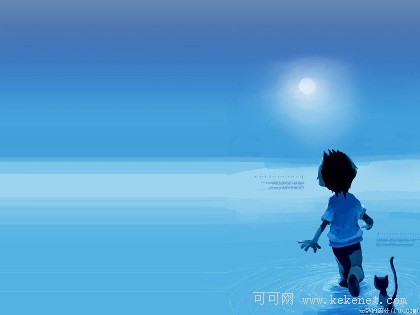
One afternoon, many years ago, I went to pick up my mother from work. I got there a little early so I parked the car by the curb(路边), across the street from where she worked, and waited for her.
许多年前的一个下午,我去接下班的妈妈。我到的时候有些早,于是将车停在路边,停在妈妈工作地方的对面,在哪儿等她。
As I looked outside the car window to my right, there was a small park where I saw a little boy, around one and a half to two years old, running freely on the grass as his mother watched from a short distance. The boy had a big smile on his face as if he had just been set free from some sort of prison. The boy would then fall to the grass, get up, and without hesitation or without looking back at his mother, run as fast as he could, again, still with a smile on his face, as if nothing had happened.
我从右侧的车窗向外看,那边有一个小公园,我看到一个小男孩,大概1岁半到2岁的年纪,正在草坪上自由地跑着,她的妈妈在近处看着他。男孩脸上挂着灿烂的微笑,仿佛他刚从某种监狱里释放出来。男孩摔倒在草地上,站起来,毫不犹豫,也不看他的妈妈,又尽力快跑起来。他的脸上依然带着微笑,放佛什么都没发生过。
However, with kids (especially at an early age), when they fall down, they don't perceive(觉察,感知) their falling down as failure, but instead, they treat it as a learning experience . They feel compelled(迫使) to try and try again until they succeed.
尽管如此,对于小孩(尤其是很小的年龄段),当他们摔倒时,他们并未觉察到摔倒是一种失败,而是将它当做学习的经验。他们迫使自己一次次去尝试直到成功为止。












